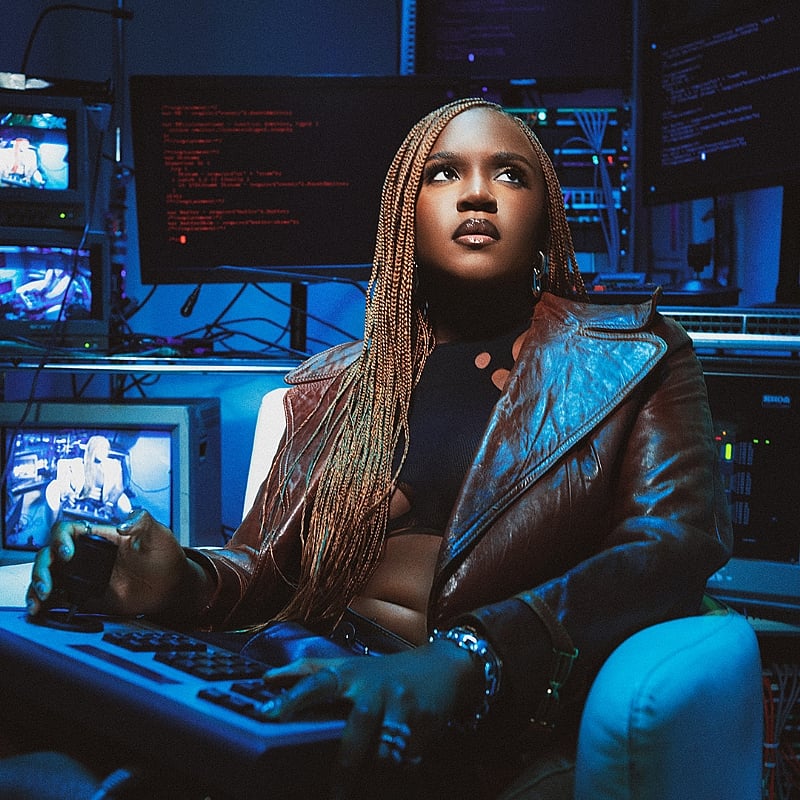The Ghanaian music industry pulsates with rhythm and melody, a vibrant tapestry of talent and creativity. Yet, within this dynamic landscape, a stark disparity persists: the marginalization of female artists. While women contribute significantly to the industry’s success – writing chart-topping hits, producing captivating beats, and managing the complex machinery behind the scenes – they often remain in the shadows, their contributions undervalued and their voices muted. The industry’s accolades, spotlights, and financial rewards predominantly gravitate towards male artists, leaving women to grapple with systemic inequalities and a pervasive culture of sexism.
This gender imbalance isn’t simply a matter of happenstance; it’s deeply entrenched within the industry’s structure. Female artists frequently encounter obstacles that their male counterparts rarely face. They are often boxed out of headlining opportunities, denied access to decision-making roles, and subjected to a double standard that demands they work twice as hard for half the recognition. They navigate a landscape fraught with societal pressures, fend off inappropriate advances disguised as mentorship, and contend with an industry that often prioritizes image over artistry. While male artists might effortlessly secure record deals based on raw talent, women are often pressured to conform to unrealistic expectations, forced to choose between their artistic integrity and their professional advancement.
The systemic nature of this discrimination manifests in various ways. A lack of female mentors deprives aspiring female artists of crucial guidance and support. The underrepresentation of women on industry panels and playlists limits their exposure and opportunities. The persistent exclusion of women from decision-making rooms reinforces a power dynamic that perpetuates inequality. Even media narratives, concert lineups, and industry rankings often marginalize or erase female contributions, creating a distorted image of an industry that thrives on the talent of both men and women.
However, amidst these challenges, a groundswell of change is emerging. A new generation of female artists, empowered by digital platforms like Spotify, are bypassing traditional gatekeepers and reaching global audiences directly. Initiatives like Afro Future’s collaboration with YouTube Music are amplifying women’s voices, providing them with not just exposure but also strategic support and empowerment. Grassroots organizations are working tirelessly to dismantle outdated systems and build a more inclusive foundation for the industry. These efforts signal a shift in the narrative, a growing recognition that the industry’s true potential can only be realized through equality and inclusivity.
Achieving genuine equality requires a comprehensive overhaul of the industry’s structure and culture. Equal representation on festival lineups, award shortlists, and media platforms is essential. Women deserve to be recognized not as token inclusions but as integral contributors to the industry’s success. Robust support systems, including mentorship programs, resource hubs, and industry networks, are crucial for equipping aspiring female artists with the knowledge, skills, and access they need to thrive. These systems must replace gatekeeping with genuine guidance and empower women to navigate the complexities of the music business.
Furthermore, policy reforms are needed to address gender-based discrimination, protect against harassment, and ensure equitable contracts, opportunities, and royalty distribution. Fairness must become a non-negotiable principle, embedded within the industry’s legal and ethical framework. Finally, fostering a sense of community and collaboration among female artists is paramount. Instead of perpetuating a competitive environment, the industry must encourage collaboration and mutual support, enabling women to collectively challenge the status quo and rewrite the rules of the game.
The Ghanaian music industry stands at a crossroads. It can cling to outdated practices that perpetuate inequality, or it can embrace a future where the talents of all artists, regardless of gender, are celebrated and nurtured. The question isn’t about the absence of female talent; it’s about the industry’s willingness to amplify their voices, recognize their contributions, and create an environment where they can thrive. The future of Ghanaian music hinges on its ability to embrace inclusivity, not as an afterthought, but as the foundation upon which a truly vibrant and world-class industry is built. The time to pass the mic, not just for the chorus, but for a shared symphony of voices, is now.


